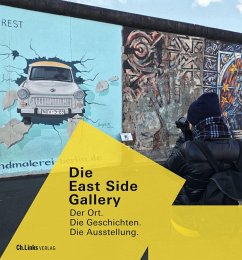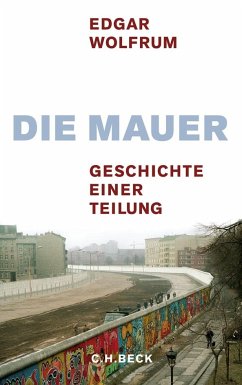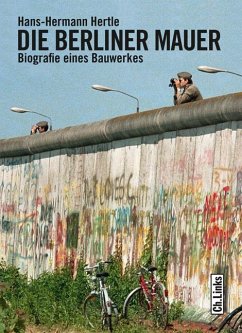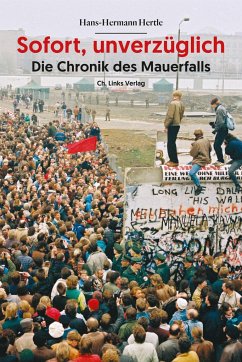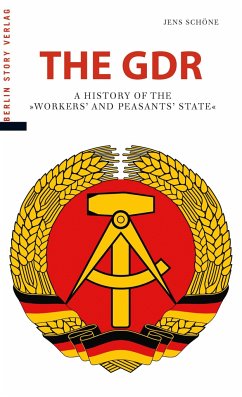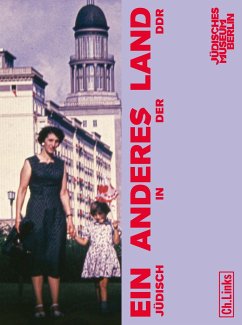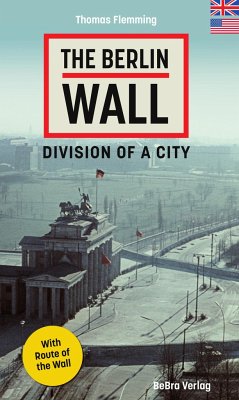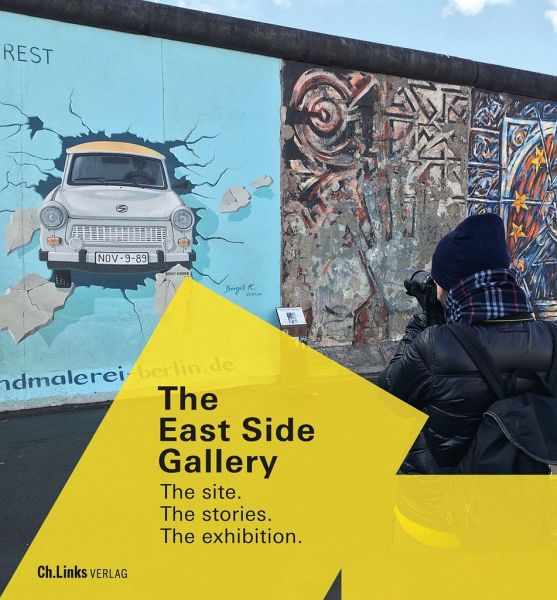
The East Side Gallery
The site. The stories. The exhibition
Mitarbeit: Klausmeier, Axel; Giffey, Franziska
Versandkostenfrei!
Sofort lieferbar
15,00 €
inkl. MwSt.

PAYBACK Punkte
0 °P sammeln!
The Berlin Wall: a symbol of freedom and a disputed monumentIn summer 1990, 118 artists from 21 countries created artworks on the Berlin Wall in Berlin-Friedrichshain. The open-air gallery became known across the world as a symbol of the end of the Cold War. Nevertheless, the question of whether to preserve it remained controversial for many years. It was not until 2000, when building permits had long since beenissued for the surrounding land, that Berlin started to actively protect the historical remnants of the divided city. The book on the exhibition traces the monument's development and re...
The Berlin Wall: a symbol of freedom and a disputed monument
In summer 1990, 118 artists from 21 countries created artworks on the Berlin Wall in Berlin-Friedrichshain. The open-air gallery became known across the world as a symbol of the end of the Cold War. Nevertheless, the question of whether to preserve it remained controversial for many years. It was not until 2000, when building permits had long since been
issued for the surrounding land, that Berlin started to actively protect the historical remnants of the divided city. The book on the exhibition traces the monument's development and recalls the different uses of the site; the various people who claimed it and who were ousted from it. Lastly, the authors look ahead to the East Side Gallery's future as a place for meeting, discussing, and exploring issues concerning the Wall, art, and the city.
In summer 1990, 118 artists from 21 countries created artworks on the Berlin Wall in Berlin-Friedrichshain. The open-air gallery became known across the world as a symbol of the end of the Cold War. Nevertheless, the question of whether to preserve it remained controversial for many years. It was not until 2000, when building permits had long since been
issued for the surrounding land, that Berlin started to actively protect the historical remnants of the divided city. The book on the exhibition traces the monument's development and recalls the different uses of the site; the various people who claimed it and who were ousted from it. Lastly, the authors look ahead to the East Side Gallery's future as a place for meeting, discussing, and exploring issues concerning the Wall, art, and the city.




